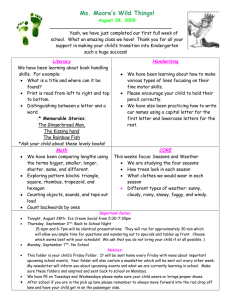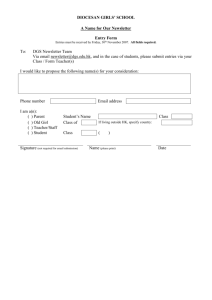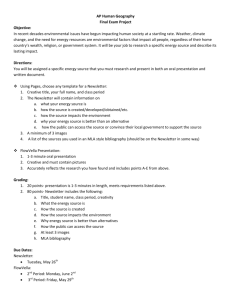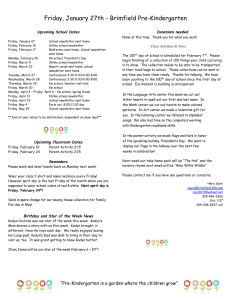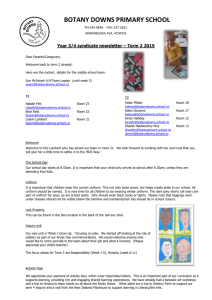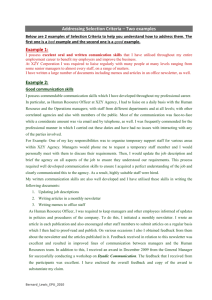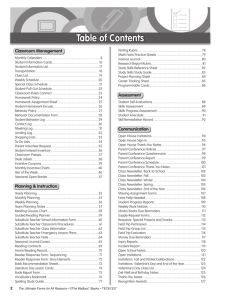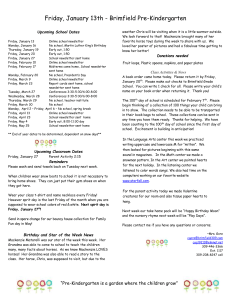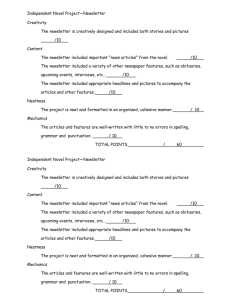ideas for positive two-way communication
advertisement
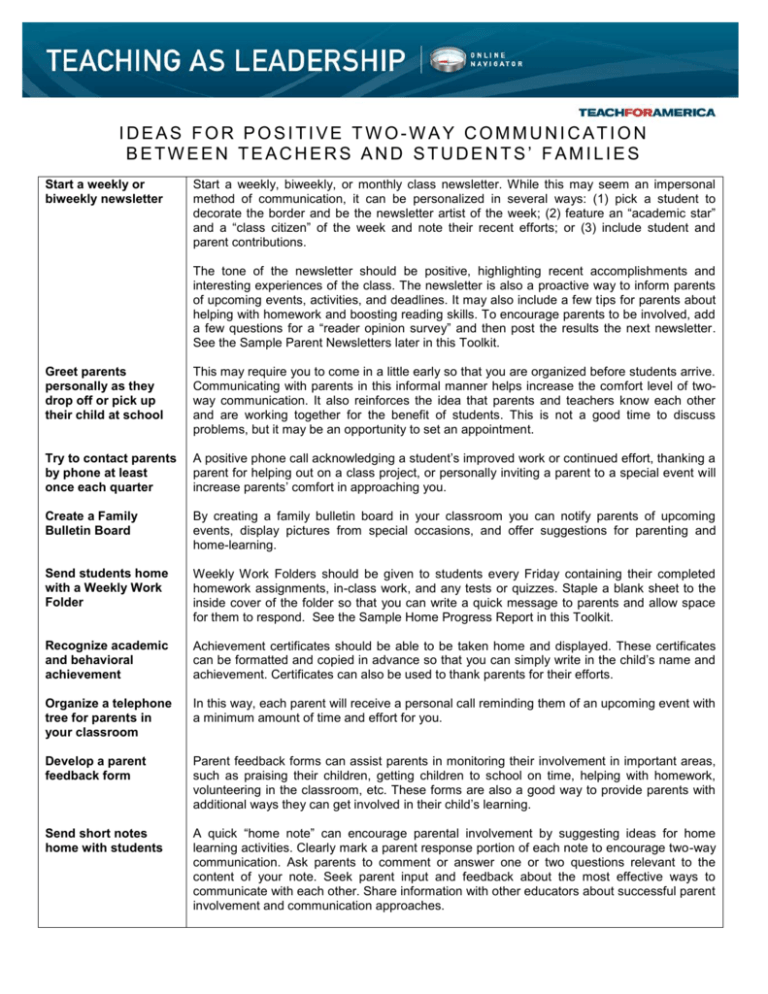
IDEAS FOR POSITIVE TWO-WAY COMMUNICATION BETWEEN TEACHERS AND STUDENTS’ FAMILIES Start a weekly or biweekly newsletter Start a weekly, biweekly, or monthly class newsletter. While this may seem an impersonal method of communication, it can be personalized in several ways: (1) pick a student to decorate the border and be the newsletter artist of the week; (2) feature an “academic star” and a “class citizen” of the week and note their recent efforts; or (3) include student and parent contributions. The tone of the newsletter should be positive, highlighting recent accomplishments and interesting experiences of the class. The newsletter is also a proactive way to inform parents of upcoming events, activities, and deadlines. It may also include a few tips for parents about helping with homework and boosting reading skills. To encourage parents to be involved, add a few questions for a “reader opinion survey” and then post the results the next newsletter. See the Sample Parent Newsletters later in this Toolkit. Greet parents personally as they drop off or pick up their child at school This may require you to come in a little early so that you are organized before students arrive. Communicating with parents in this informal manner helps increase the comfort level of twoway communication. It also reinforces the idea that parents and teachers know each other and are working together for the benefit of students. This is not a good time to discuss problems, but it may be an opportunity to set an appointment. Try to contact parents by phone at least once each quarter A positive phone call acknowledging a student’s improved work or continued effort, thanking a parent for helping out on a class project, or personally inviting a parent to a special event will increase parents’ comfort in approaching you. Create a Family Bulletin Board By creating a family bulletin board in your classroom you can notify parents of upcoming events, display pictures from special occasions, and offer suggestions for parenting and home-learning. Send students home with a Weekly Work Folder Weekly Work Folders should be given to students every Friday containing their completed homework assignments, in-class work, and any tests or quizzes. Staple a blank sheet to the inside cover of the folder so that you can write a quick message to parents and allow space for them to respond. See the Sample Home Progress Report in this Toolkit. Recognize academic and behavioral achievement Achievement certificates should be able to be taken home and displayed. These certificates can be formatted and copied in advance so that you can simply write in the child’s name and achievement. Certificates can also be used to thank parents for their efforts. Organize a telephone tree for parents in your classroom In this way, each parent will receive a personal call reminding them of an upcoming event with a minimum amount of time and effort for you. Develop a parent feedback form Parent feedback forms can assist parents in monitoring their involvement in important areas, such as praising their children, getting children to school on time, helping with homework, volunteering in the classroom, etc. These forms are also a good way to provide parents with additional ways they can get involved in their child’s learning. Send short notes home with students A quick “home note” can encourage parental involvement by suggesting ideas for home learning activities. Clearly mark a parent response portion of each note to encourage two-way communication. Ask parents to comment or answer one or two questions relevant to the content of your note. Seek parent input and feedback about the most effective ways to communicate with each other. Share information with other educators about successful parent involvement and communication approaches.
